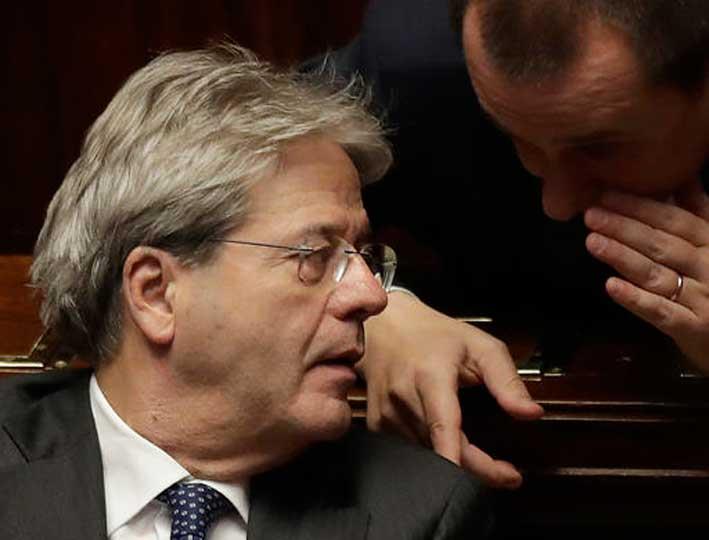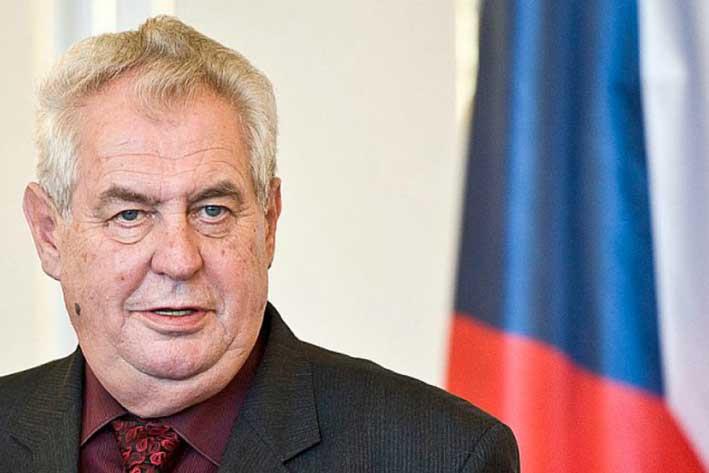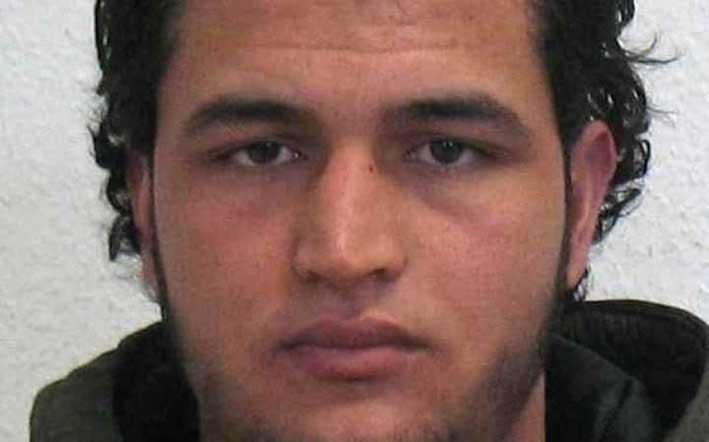Italy is relying on its long-standing yet sometimes strained friendship with Malta in a new bid to double the number of expulsions of irregular migrants from its territory.
With Malta assuming the Presidency of the European Union today, the Italian government is relying on Malta’s support for its plans for a new drive for more checks and deportations of undocumented migrants from Italian soil.
To this effect, Italian Home Affairs Minister Marco Minniti said yesterday that he has arranged to hold bilateral talks with Malta this month with a view to facilitating the identification and repatriation of irregular migrants. In addition to Malta, Minniti said he will also hold bilateral discussions with the North African countries of Egypt, Tunisia and Libya.
Minniti’s comments were reported in several sections of the Italian press yesterday.
Speaking on Friday, Italian Prime Minister Paolo Gentiloni (below) said that he has spoken with Maltese Prime Minister Joseph Muscat, “who will have a relevant role in the reform of the EU’s Dublin Regulation”, about Italy’s deportation plans.

He was quoted as saying, “I trust that the good offices of the EU Presidency will not take any punitive actions against Italy” over its designs on how to deal with the country’s significant migrant influx and on its plans to deport undocumented migrants.
With regard to the Mediterranean migration phenomenon, Malta’s relationship with Italy has been fraught with tension over the last 10-odd years. The two countries clashed many times over responsibility of rescues at sea and where, exactly, migrants rescued from the Mediterranean’s waters should be brought ashore.
But in 2015 it seems that a deal of sorts had been struck between Malta and Italy, which has seen the vast majority of the Mediterranean’s rescued migrants being brought to Italy and with Malta having received virtually none.
It had been suggested in the past that there had been secret deal that saw Malta surrendering oil exploration rights to Italy in return for Italy handling the majority of migrant rescues in the central Mediterranean and taking the migrants to Italy instead of Malta, irrespective of where the closest safe port of call was. Both countries have vociferously denied the allegations.
Some media pundits are now speculating that the deal may have had less to do with oil rights and more to do with the possibility of striking a deal on the touchy issue of deportations with the European Union, once Malta is at the helm.
But given the multiple terrorist attacks in Europe this year, the issue has been given a completely new impetus.

The Czech President Milos Zeman (above) this week linked the recent attacks in Europe to the ongoing influx of migrants escaping war-torn, poverty-stricken countries.
Milos Zeman told Czechs in his annual Christmas speech on Monday that "today almost no one doubts the connection between the migration wave and terrorist attacks".
In order to prevent terrorist attacks on Czech soil, the president said that the Czech Republic should not take in migrants on a "so-called volunteer basis", alluding to the European Union's efforts to distribute migrants across the continent.
Zeman said he has nothing against helping migrants "on their territory or in neighbouring territories" or helping Italy and Greece, but "placing Muslim, hardly compatible migrants on our territory would mean creating a breeding ground for potential terrorist attacks".
The matter, as far as Italy is concerned, has taken on new significance since the Berlin Christmas market attack.
Italian Premier Gentiloni said on Thursday that there are no indications the Tunisian fugitive from the Berlin Christmas market attack (below), who was shot dead near Milan, had any significant contacts in Italy.

Italian investigators have been trying to determine whether Anis Amri tapped a jihadi network in Italy, his European port of entry when he left Tunisia in early 2011 and the end of his nearly four-day flight following the Berlin truck attack that left 12 dead.
"No particular networks have emerged in Italy," Gentiloni told reporters in Rome ahead of a security meeting in Milan headed by his interior minister.
However, the Prime Minister said there still is a need to enhance anti-terror measures, including making it easier to deport migrants living in the country illegally. Existing measures already permit Italy to expel foreign nationals with suspected terror ties, with 66 carried out so far this year and 152 since the beginning of 2015.
They include a Tunisian man living in the northern province of Brescia who was expelled Thursday. The Interior Ministry alleged he received instructions last month to carry out an attack in Italy "in retaliation for operations by Italy in Libya".
Interior Minister Marco Minniti said the deported man apparently had no connection with fellow Tunisian Amri and there were no indications any attack was imminent.
"But the expulsion was important because he wasn't just any character. He had a profile that was potentially interesting," Minniti said.
Authorities in Rome, meanwhile, seized cellphones during a search of two apartments where Amri stayed in 2015, the news agency ANSA reported. One is home to a Tunisian currently jailed on a drug dealing conviction.

Amri (above) died of a single gunshot wound last Friday after shooting an officer in the shoulder during a routine police stop in the working class Milan suburb of Sesto San Giovanni. He was spotted alone outside a deserted train station in the early morning hours, drawing the officers' suspicion.
Minniti said such preventative policing was key to the terror fight.
"We are facing a high level of unpredictability, and the only way of avoiding these actions is to control the territory," Minniti said.
Amri had crossed the border from France by train hours earlier, getting off in the Italian border town of Bardonecchia, and then taking a regional train to Turin and another to Milan. His ultimate destination remains unclear.
Gentiloni credited good police work for ending Amri's flight, but said the government would look at further strengthening anti-terrorism measures. That would include steps "to make more efficient the repatriation mechanisms from the migrant centres," he said.
Amri told authorities after his arrival in 2011 that he was a minor, winning him the right to stay, but he quickly landed in jail after setting fire to a migrant centre. Attempts by Italy to deport him after his release failed for bureaucratic reasons.
Gentiloni noted that Amri apparently was radicalized while he was in Italy.
"We know that in most cases, the radicalization happens in our prisons, in our neighbourhoods," Gentiloni said.